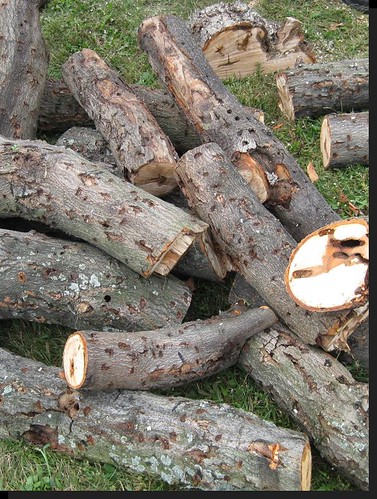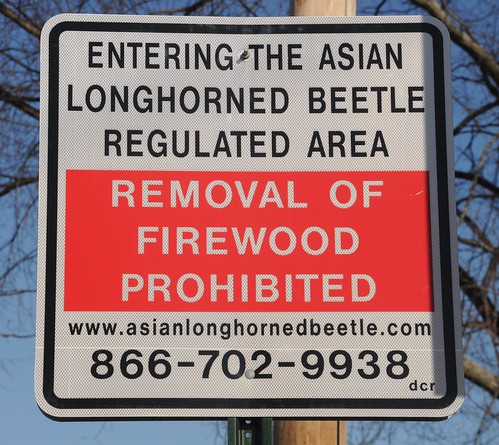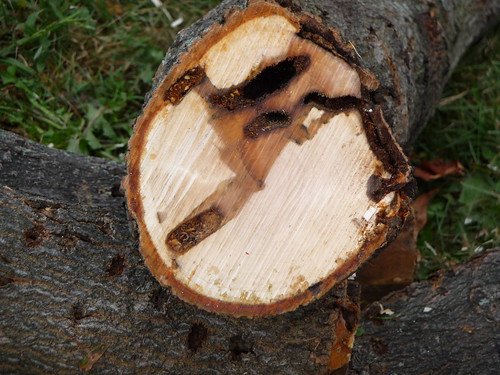
Sections of a tree that’s been cut down showing a lot of damage from ALB, such as tunneling at the ends, exit holes and egg sites.
It’s fall in North America. It’s the time of year that marks the transition from summer into winter. It’s when the night time comes earlier and the weather cools considerably. It’s also the time of year when most of us start to turn on our heat or start to acquire firewood.
There are a lot of us that use firewood as a heat source. According to U.S. Census data 2.4 million homes across the country are heated by wood. This number does not include homes that use firewood as secondary heating or those of us that use it when we’re camping or even just to sit around in the yard. Whether or not you use wood to heat your home or build a campfire, firewood is used by millions of Americans.

Road sign placed in Massachusetts banning the movement of firewood out of the ALB regulated area.
Unfortunately, firewood also presents a very real threat to our nation’s forests. Invasive insects like the Asian longhorned beetle, the emerald ash borer, and gypsy moth can be spread into new areas of the country on firewood. While the USDA’s Animal and Plant Health Inspection Service works with states on imposing quarantines to restrict the movement of potentially infested wood from areas that have these types of pests, it is up to all of us to help protect our trees by not moving firewood. By buying or acquired firewood where you will eventually burn it, you can stop damaging forest pests from getting into new areas.
Here are some tips to avoid moving invasive pests in firewood:
- Use local or heat-treated – Use firewood that was cut locally or that has been properly heat-treated to kill any pests that may have been in or on it. If you’re unsure if the firewood is local or treated, ask the seller.
- Don’t bring it with you – When traveling don’t bring firewood with you, instead buy firewood at your destination or purchase firewood that is labeled treated and certified. Many recreational areas have firewood for sale so ask about it when you make your reservations.
- Use it up – When you purchase firewood for heating or recreational use, burn it all at that location. Please don’t take it to another area.

Cut end of a piece of wood showing tunneling damage from ALB.
Interested in learning more? Read the 2010 document Risk Assessment of the Movement of Firewood within the United States to see how firewood is a serious pathway for moving forest pests or visit aphis.usda.gov/firewood. And stay warm!
No comments:
Post a Comment